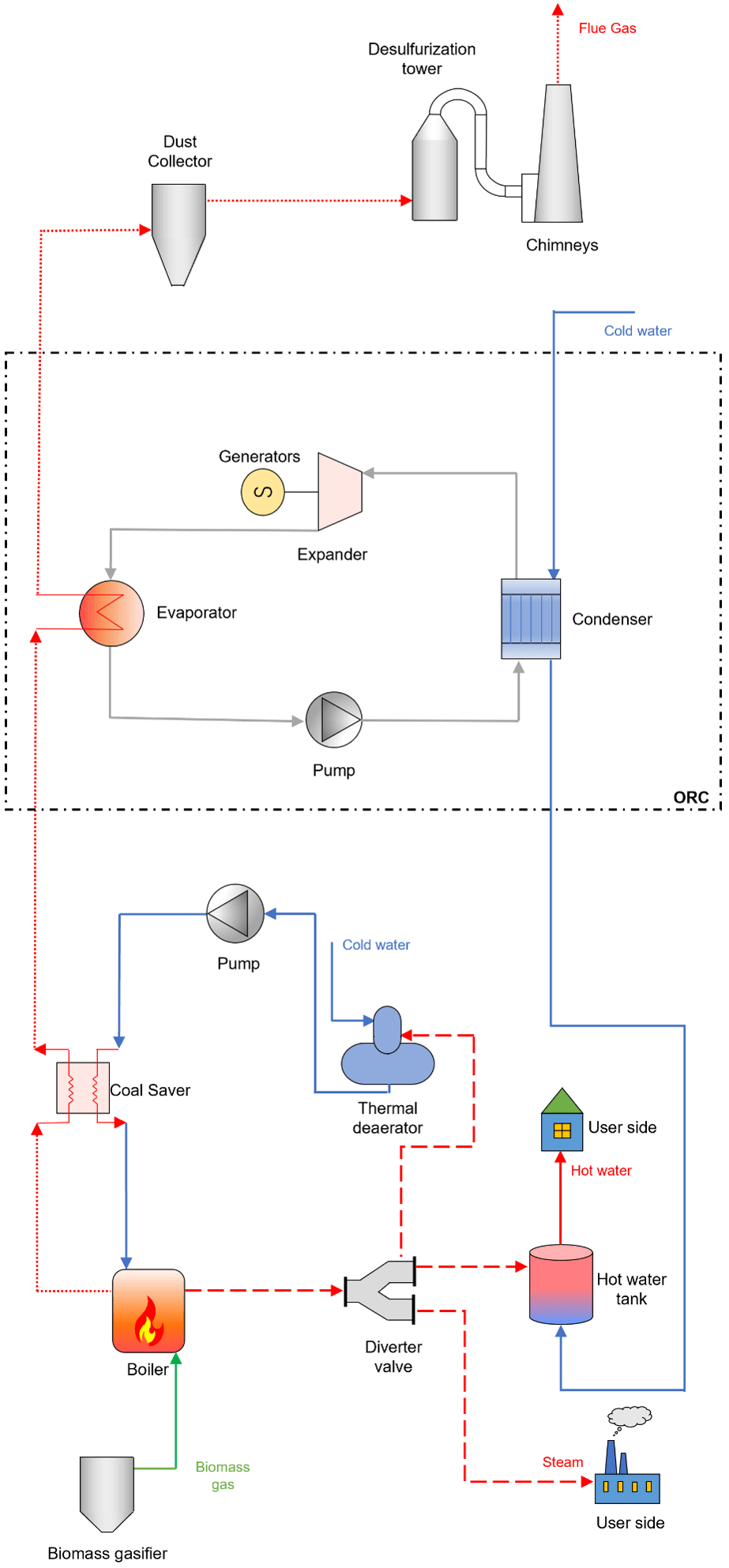 Open Access
Open Access
ARTICLE
Simulation Analysis of Flue Gas Waste Heat Utilization Retrofit Based on ORC System
1 College of Energy and Mechanical Engineering, Shanghai University of Electric Power, Shanghai, 200090, China
2 Shanghai Engineering Research Center of Energy-Saving in Heat Exchange Systems, Shanghai, 200090, China
3 China Huadian Corporation Ltd. Shang Hai Company, Shanghai, 200126, China
4 Zaozhuang Vocational College, Chemical and Pharmaceutical Institute, Zaozhuang, 277000, China
* Corresponding Author: Jiang Liu. Email:
Energy Engineering 2023, 120(8), 1919-1938. https://doi.org/10.32604/ee.2023.027546
Received 03 November 2022; Accepted 17 February 2023; Issue published 05 June 2023
Abstract
Recovery of waste heat from boiler flue gas is an effective way to improve energy utilization efficiency. Taking a heating station heating project as an example, the existing heating system of this heating station was analyzed for its underutilized flue gas waste heat and low energy utilization rate. Rankine cycle is an effective waste heat recovery method, and a steam boiler organic Rankine cycle (ORC) cogeneration waste heat utilization method is proposed. The system model simulation is constructed and verified. First, a thermodynamic model was constructed in MATLAB and five suitable work gases were selected to analyze the effects of evaporation temperature and condensation temperature on the network and thermal efficiency of the waste heat cycle power system. Secondly, the ORC model is invoked in TRNSYS to construct the improved cogeneration system, and the rationality of the remaining heat utilization methods is determined by calculating and analyzing the thermal performance, economy, and environmental protection of the improved system. The simulation results show that the system can generate about 552,000 kWh of electricity per year, and improving the energy utilization rate from 0.72 to 0.78.Graphic Abstract

Keywords
Cite This Article
 Copyright © 2023 The Author(s). Published by Tech Science Press.
Copyright © 2023 The Author(s). Published by Tech Science Press.This work is licensed under a Creative Commons Attribution 4.0 International License , which permits unrestricted use, distribution, and reproduction in any medium, provided the original work is properly cited.


 Submit a Paper
Submit a Paper Propose a Special lssue
Propose a Special lssue View Full Text
View Full Text Download PDF
Download PDF Downloads
Downloads
 Citation Tools
Citation Tools